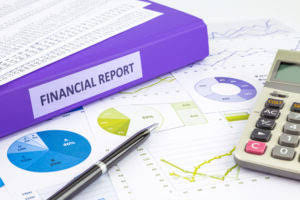Inventory Accounting: A Complete Guide

ShipBob’s network of global fulfillment centers lets you distribute inventory strategically to minimize shipping costs and inventory bookkeeping times. Susan, who runs a pet supply store, starts the accounting period with 80 boxes of dog treats, which she had acquired for $3 each. Later, she buys 150 more boxes at a cost of $4 each, since her supplier’s price went up. You need to know which SKUs you have on hand, how to budget for and predict demand, and how much your inventory is worth. Integrate with online sales channels and marketplaces to automate invoice and sales order creation, track shipments real-time with shipping partner integrations.
- This category refers to raw materials, overhead costs, and labor of products in the different stages of production.
- This average cost is then applied to both the Cost of Goods Sold and the ending inventory.
- COGS is calculated using the most recent costs, while the ending inventory is valued using the oldest costs.
- The choice of inventory valuation method has far-reaching implications for profitability, financial analysis, and even taxes.
- Additionally, a lack of production planning may lead to additional production costs to make up for last-minute or rush orders and to avoid delays, such as additional shipping costs.
- When an item is sold using specific identification, the cost is matched to the initial buying price.
- She holds a Bachelor of Science in Finance degree from Bridgewater State University and helps develop content strategies.
Comprehensive Guide to Inventory Accounting Practices and Principles
Inventory Accounting ( Accounting for inventory ) is a term for the systems and methods used to track, value, and report a company’s stock of goods. Inventory is a current asset on the balance sheet and includes raw materials, work-in-progress, and finished goods held for sale. When a company purchases inventory, the transaction is recorded in the bookkeeping system. Inventory is considered an asset on a company’s balance sheet and should be recorded at cost.
Cost control and reduction
This is a highly preferred method due to its simplicity, especially as it reduces the need for record-keeping. You can easily use ecommerce inventory systems to automatically recalculate averages with each purchase. It’s typically recommended for homogenous products (i.e., products that are all the same) and businesses with frequent inventory turnovers. Specific identification requires tracking each individual item in inventory from purchase to sale. When an item is sold using specific identification, the cost is matched to the initial buying price.
Minimizes storage costs

The term inventory refers to the raw materials used in production as well as the goods produced that are available for sale. There are three types of inventory, including raw materials, work-in-progress, and finished goods. Inventory valuation methods determine how inventory costs are allocated and reported in financial statements.


And now, armed with all this newfound knowledge, you’re ready to conquer the maze of inventory management. When it comes to the end of a business’ accounting period, it is somewhat unlikely that the business has sold the entirety Accounting Periods and Methods of its inventory. Consider a fashion retailer such as Zara, which operates on a seasonal schedule. Because of the fast fashion nature of turnover, Zara, like other fashion retailers is under pressure to sell inventory rapidly. On the other hand, the fabric and other production materials are considered a raw material form of inventory. Methods to value the inventory include last-in, first-out, first-in, first-out, and the weighted average method.
Cost of goods sold (COGS) calculation
The method chosen can significantly influence financial reporting and business decision-making. One common approach is the First-In, First-Out (FIFO) method, which assumes that the oldest inventory items are sold first. This method is often used in times of rising prices, as it can result in lower cost of goods sold and higher net income. Inventory accounting plays a significant role in shaping a company’s financial health. The valuation method selected influences the balance sheet, income statement, and cash flow statement. For instance, inventory is a current asset on the balance sheet, and its valuation affects the total assets reported.

Managing Inventory Costs: Breaking Down Expenses
Discover the essential mechanics of inventory accounting for accurate asset valuation and informed financial decision-making. Although GAAP permits this method, it’s not suitable for businesses operating internationally. Let’s use the same example above of purchasing 5 units of a SKU at $10 each and then another 5 of the same SKU at $15 each.

Inventory Accounting: A Detailed Guide
Investments in securities are Not FDIC insured, Not Bank Guaranteed, and May Lose Value. Before investing, consider your investment objectives and the fees and expenses charged. IFRS offers more flexibility as it’s more principles based, while GAAP is more rule-based. I could log on to our ShipBob account and see everything in one place, no matter if I’m looking at our facility in Kankakee, IL, or the ShipBob fulfillment centers in Canada or Europe.
Consignment inventory is the inventory owned by the supplier/producer (generally a wholesaler) but held by a customer (generally a retailer). The customer then purchases the inventory once it has been sold to the end customer or once they consume it (e.g., to produce their own products). Product planning can affect Financial Forecasting For Startups your sales estimates and production timing as it determines how much inventory you’ll need to meet future demands. By integrating Vencru’s comprehensive platform, you can enhance financial accuracy and streamline your inventory accounting, allowing you to focus on driving business growth. This system updates inventory records at specific intervals (e.g., weekly, or monthly).
